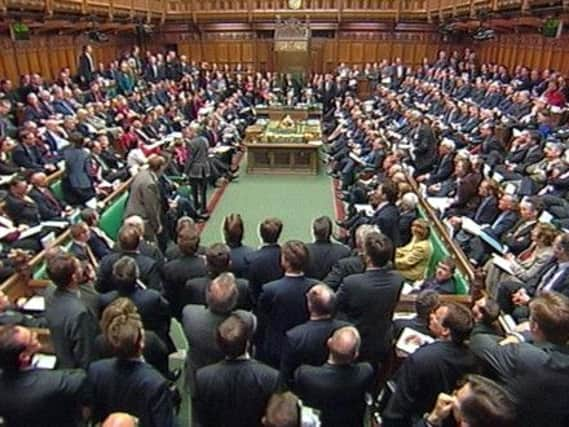David Maddox: Osborne emerges as kingpin for Tory hopes


The assessment of Paddy Power was slightly more likely to put a smile on David Cameron’s face than that of Labour leader Ed Miliband, with the Prime Minister 6/5 to end up as the leader of the biggest party in parliament, compared to 5/4 for his main opponent.
And indeed there is much cause for optimism if you are a Conservative. The GDP figures due to be published today are expected to confirm that the economy’s growth is accelerating which, along with the recent record rises in employment, suggests that the basket case the Coalition inherited from Labour is now in much better shape.
Advertisement
Hide AdAdvertisement
Hide AdGenerally, economic success is a marker for electoral success and failure with the country’s finances usually signals the route to the exit door. But there remain many problems for Mr Cameron to overcome. Not least of these is that the Prime Minister is still not in control of his own party. The mini rebellion over HS2 yesterday highlighted that problem, and that is a minor issue compared with Europe.
Noticeably, members of the so- called Gideon Club close to George Osborne are no longer talking about Mr Cameron in terms of “we”, but bigging up the Chancellor.
In the meantime, there are also two major electoral tests around the corner: the European Parliament and the Scottish independence referendum.
A win for Ukip in the European poll will send panic waves around the Conservative eurosceptic wing, who believe that such a result would indicate lost votes and seats in the 2015 General Election, even if Ukip leader Nigel Farage argues that he is taking as many votes from Labour as the Tories.
It is hard to know whether a Yes vote for independence in Scotland would be blamed on Mr Cameron or Labour. It is fair to say that a few of the English Tory MPs might congratulate Mr Cameron for losing Scotland and all its Labour MPs. Most of all though, the way the seats are divvied up means that a Tory majority is still unlikely, while Labour needs just 35 per cent to get a majority.
Much might be decided in the coming months when one last government reshuffle is expected. As things stand, it seems that Tory party chairman Grant Shapps, nominally in charge of strategy, could make way for a big name.
The trouble is that whoever takes his place will have to prise election strategy from the ambitious Mr Osborne – or at least find a way of working with him.